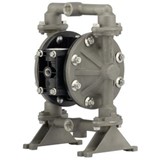In Australia's Competitiveness: Reversing the slide, Professor Makin highlights the impact of loose fiscal policy on the marked deterioration of national competitiveness.
"Overly expansionary fiscal settings of federal and state governments in the wake of the crisis, settings that have yet to be fully reversed, have contributed to the dollar's strength and been a major source of our competitiveness problem."
Professor Makin's report is critical of the scale and timing of the stimulus package deployed during the global financial crisis (GFC), including the Building the Education Revolution program:
"…The fiscal stimulus measures, most notably the BER program, failed to deliver as originally expected and left a loss of competitiveness as a lasting legacy."
Fiscal response to crisis
By contributing to the dollar's strength and by creating pervasive policy uncertainty about how the large budget deficit it created was to be reversed, the fiscal response to the crisis weakened the economy, Professor Makin argues.
He concludes that it was the traded goods sector that helped nurse Australia through the worst of the GFC. Close scrutiny of the national accounts shows that "it was the behaviour of exports and imports, not increased fiscal activity that was primarily responsible for offsetting the fall in private investment due to the GFC". Professor Makin adds that Australia's escape from the worst of the GFC bred complacency about the need to address competitiveness and productivity problems via economic reform.
Australia's competitiveness
Professor Makin analyses different measures of Australia's competitiveness, beyond the traditional real exchange rate measure, all of which show a marked deterioration over recent years. These include:
- The relative prices of non-tradable goods and services (products not traded on world markets, including many government services) to the prices of tradable goods and services (products which are, or could be, traded internationally). On this measure, Australia's competitiveness has deteriorated by close to 30 per cent since the late 1990s as domestic demand pressures have pushed up inflation in the non-tradables sector, putting competitive pressure on the tradable goods sector of the economy.
- Australia's World Economic Forum (WEF) competitiveness ranking. Australia has slipped from being ranked in the top 10 most competitive countries in the world in the early 2000s to 21st – outside the top 20 most competitive countries for the first time.
Makin concludes that Australia urgently needs "a more searching national conversation about our international competitiveness", adding that, "Australia will not durably improve its competitiveness without serious fiscal and structural reform, including labour market reform. The Abbott Government should grasp this narrative and own it."















